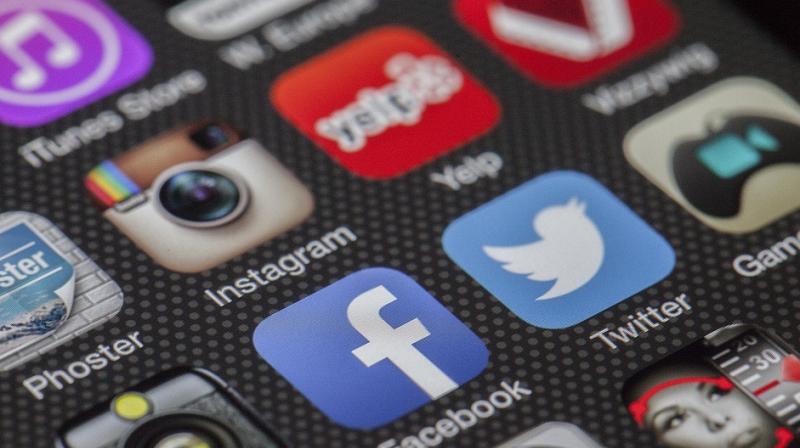Despite negative influence, people can't stop using social media: study
Nearly half of millennials known their social media addiction is bad but are still addicted to it

Washington D.C.: We know it isn't good for our health but being glued to our smartphone is something we all just can't resist.A study reports that nearly half of millennials fear their addiction to social media is having a negative effect on their mental and physical health.
A new survey by the American Psychological Association (APA) found about 90 percent of people aged 18-29 were using social media, up from just 12 percent in 2005.The APA report said: "Technology has improved life for many Americans and nearly half of this country's adults say they can't imagine life without their smartphones.
"The survey showed, nearly all adults (99 percent) own at least one electronic device (including a television). Almost nine in 10 (86 per cent) own a computer, 74 percent own an internet-connected smartphone and 55 percent own a tablet. "At the same time, numerous studies have described consequences of technology use, including negative impacts on physical and mental health."
Of the social media platforms, Facebook was the most frequently visited with 79 percent on adults using it last year.In second place was Instagram with 32 percent, then Pinterest and LinkedIn, both on 29 per cent, and Twitter with 24 per cent.Many millennials, defined as those aged between 18 and 37, were concerned about how much time they were spending on social media.
"Almost half (48 percent) worry about the negative effects of social media on their physical and mental health," the report said.The researchers also identified a group of people so attached to their gadgets that they were constantly or often checking their emails, texts or social media accounts.
APA said: "More than a decade after the emergence of smartphones, Facebook and Twitter, a profile is emerging of the 'constant checker'. Such avid technology and social media use has paved the way for the 'constant checker', those who constantly check their emails, texts or social media accounts."
These 'constant checkers' reported higher stress levels than their less-connected peers.On a 10-point scale, with one being little or no stress and 10 being a great deal of stress, this group reported overall stress levels of 5.3 compared to an average of 4.4.
The report said: "For some, constant checking itself can be a stressful act. Constant checkers are more likely to say that constantly checking devices is a stressful aspect of technology, compared to non-constant checkers (29 per cent vs. 24 per cent, respectively)."
Some 65 per cent of Americans agreed that periodically "unplugging" or taking a "digital detox" was important.Despite the majority wanting to switch-off, the report added: "Only 28 per cent of those agree about the important of a detox actually report doing so."

